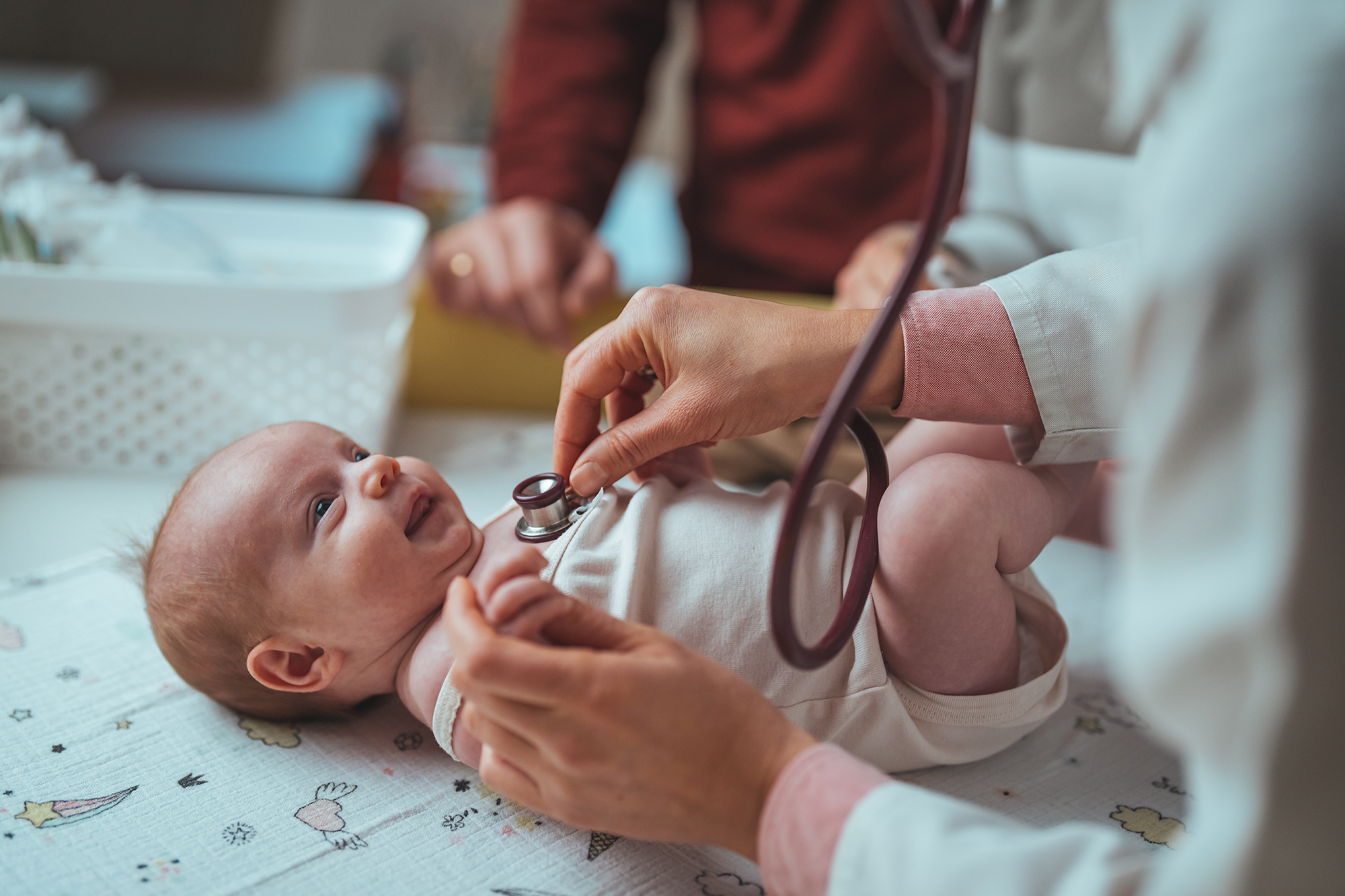
Weird things about your baby that are actually normal
Newborns do a lot of things that may seem weird or scary. They’re new to the world, so there’s a lot that they aren’t used to. As a parent, you may worry about whether something your baby does is weird or normal.
“For babies, there’s a range of what’s normal,” said Luis Garcia Tillan, MD, a pediatrician at OSF HealthCare.
As a first-time parent, experiencing your newborn’s quirks for the first time can be alarming.
“We just want to make sure that your baby falls within that range of normal,” Dr. Garcia said.
Sleeping
Sometimes you may be sure your baby’s asleep, but their eyes are open. It’s not super common, but it is normal for babies to sleep with their eyes open sometimes.
Newborns need lots of sleep. When they’re first born, your baby doesn’t know the difference between night and day. That’s often why babies sleep all day and are awake a lot throughout the night.
It may not be the most fun part of parenting, but it’s perfectly normal for your baby to wake up throughout the night. Not only are they learning the difference between night and day, but they also need to eat more frequently during the night.
“Babies need to wake up about every three hours to eat. They don’t eat as much in one feeding because their tummies are so small. They can only eat a little bit at a time. So, they need to eat more frequently,” Dr. Garcia said.
Eating
If you’re breastfeeding your baby, you may have heard that your baby’s face and body should be positioned toward your breast, so your baby doesn’t have to turn their head to feed. It may seem like they wouldn’t be able to breathe while they’re eating, but that’s not the case.
Not sure if that’s normal?
That’s because babies can breathe through their nose while they’re eating.
Babies also get hiccups often after they eat. Because they get their nutrients through nothing but liquids, they take in extra air. This causes gas. Often it comes out as hiccups, burps and gas. It’s normal for your baby to be gassy. It likely causes your baby a little discomfort, so they may act fussy when they’re extra gassy.
Diapers
If your baby is producing colorful poops, there’s usually nothing to worry about. Breastfed babies have seedy, yellowish poops. Bottle-fed babies have a little bit more solid, brownish poops.
“Once your baby starts eating solid foods around 6 months old, their diapers will look as colorful as the food they ate,” Dr. Garcia said.
What’s normal development?
Your baby’s eyes
Sometimes your baby might go cross eyed for a bit. It can be scary, but it’s completely normal. Your baby’s eyes are still developing. In fact, they can’t focus close up until they’re near 3 months old when their eye muscles are stronger.
In the first month, your baby will enjoy making eye contact with you, but their vision isn’t very focused at this point. Things about 8 to 10 inches away from their sight are more focused than what’s close up.
By 2 months, they should be able to see your face.
Your baby’s bones
Have you noticed that your baby is a little … floppy? That’s why it’s so important to support your baby’s head. Their necks are not strong enough to support their big heads.
Even though they seem so flexible and squishy, babies actually have more bones than adults do. Adults have around 200 bones, and babies have about 300 bones. Babies are born with tiny bones that eventually fuse together.
That squishiness that makes babies so fun to hold is actually a very important part of your baby’s development. Babies are mostly filled with cartilage while their bones are growing. This is good for their bodies while they learn how to do things like crawl and walk.
Crawling on our hands and knees might be painful for adults. But babies’ knees are mostly cartilage, so it’s like they’re wearing knee pads.
Your baby’s breathing
Your baby’s heart rate is higher than yours. Their bodies are growing very quickly, so their breathing keeps pace. If it looks like your baby is breathing really fast, there shouldn’t be anything to worry about. However, if it looks like your baby is breathing more from their ribs than their belly, then you may want to talk to your pediatrician about it.
Your baby’s arms and legs
Babies make a lot of twitchy movements. It may look like your baby is attempting to learn how to swim on dry land, but those are just their normal movements.
They have no control over the movements their bodies make.
“Sometimes babies even keep themselves up when they’re supposed to be sleeping because their arms and legs won’t stop moving. That’s when swaddling can make them more comfortable,” Dr. Garcia said.
Your baby’s skin
Babies have very sensitive skin, so little irritations are likely to pop up.
If your baby has dry, flaky skin or oily, scaly patches on their scalp, it’s probably cradle cap, which is completely normal. Don’t pick or scratch dry patches. If your baby has cradle cap, gently wash their head with water. There’s no need to use any lotions. And avoid putting a hat on your baby unless it’s necessary.
Your baby will also likely have baby acne. Baby acne looks like small red or white bumps on your baby’s cheeks, chin or forehead. Don’t pick at these. You can put baby face lotion on the affected areas if it becomes a problem. Most baby acne goes away on its own.
Babies are weird, but a lot of the things your baby does are completely normal. If you have any concerns about something you don’t think is normal, talk to your baby’s pediatrician.